Session preview: "It's basically Demon's Souls on a skateboard"
An ode to skateboarding's golden age in an authentic (but difficult) game
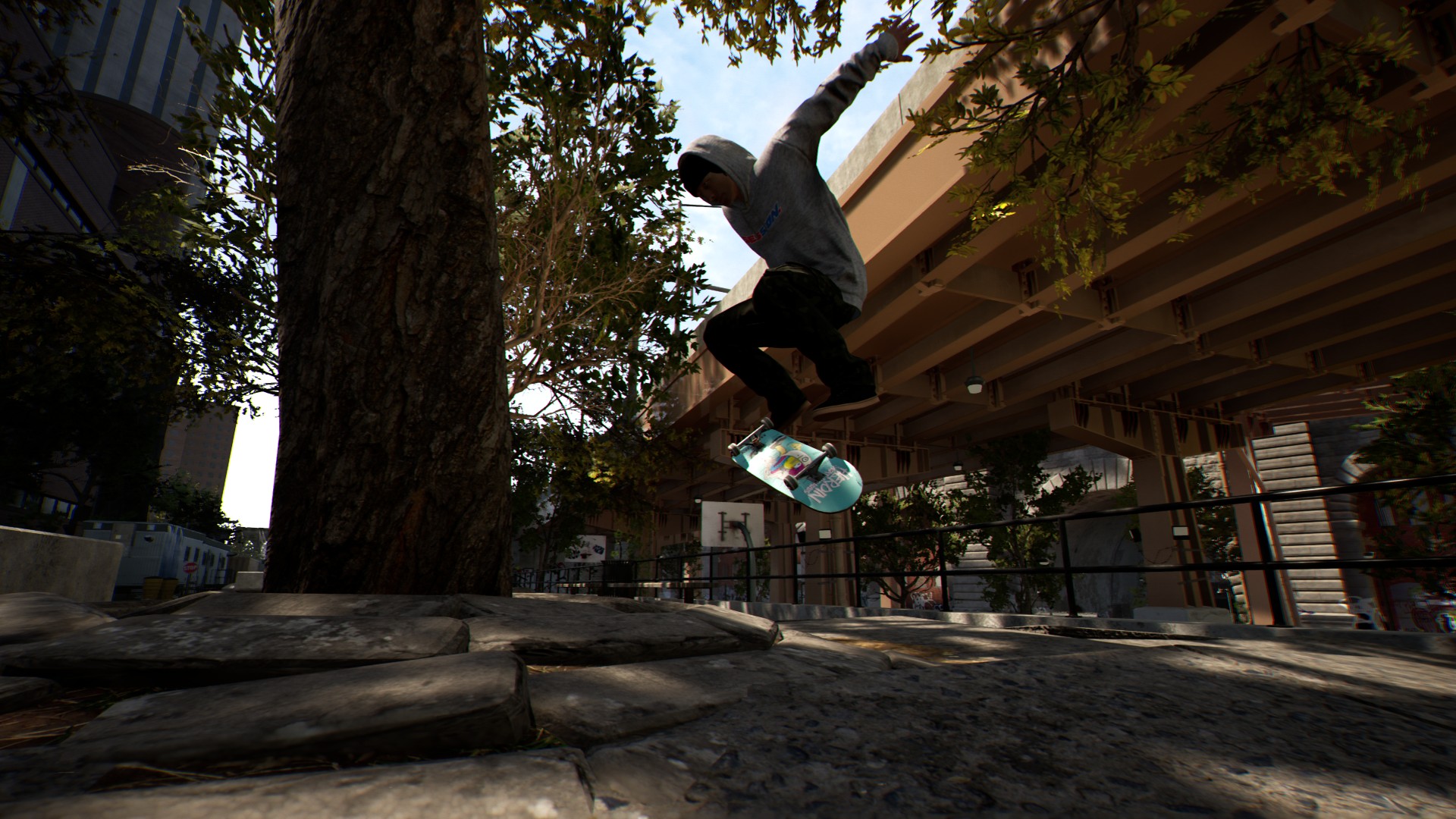
Session isn't here to hold your hand. "Nothing's gonna help you," co-creator Marc-André Houde tells me as he effortlessly executes a boardslide over a picture-perfect recreation of the infamous Brooklyn Banks skate spot. When I was handed the controller a few moments later, I smacked into a wall trying to turn – because Session is hard. It's probably the most accurate representation of skating presented in a video game, and skateboarding ain't easy (that's why I never picked it up in middle school, despite owning several pairs of Etnies).
So what do we know about the game that's expected to step into the deck-sized hole left by the absence of Skate 4? I got a chance to chat with Montreal-based Crea-ture Studios co-founders Marc-Andrew Houde and Vincent Da Silva while spending some time in Session's 1:1 recreation of Lower Manhattan, and here are my takeaways.
Sticks are for tricks
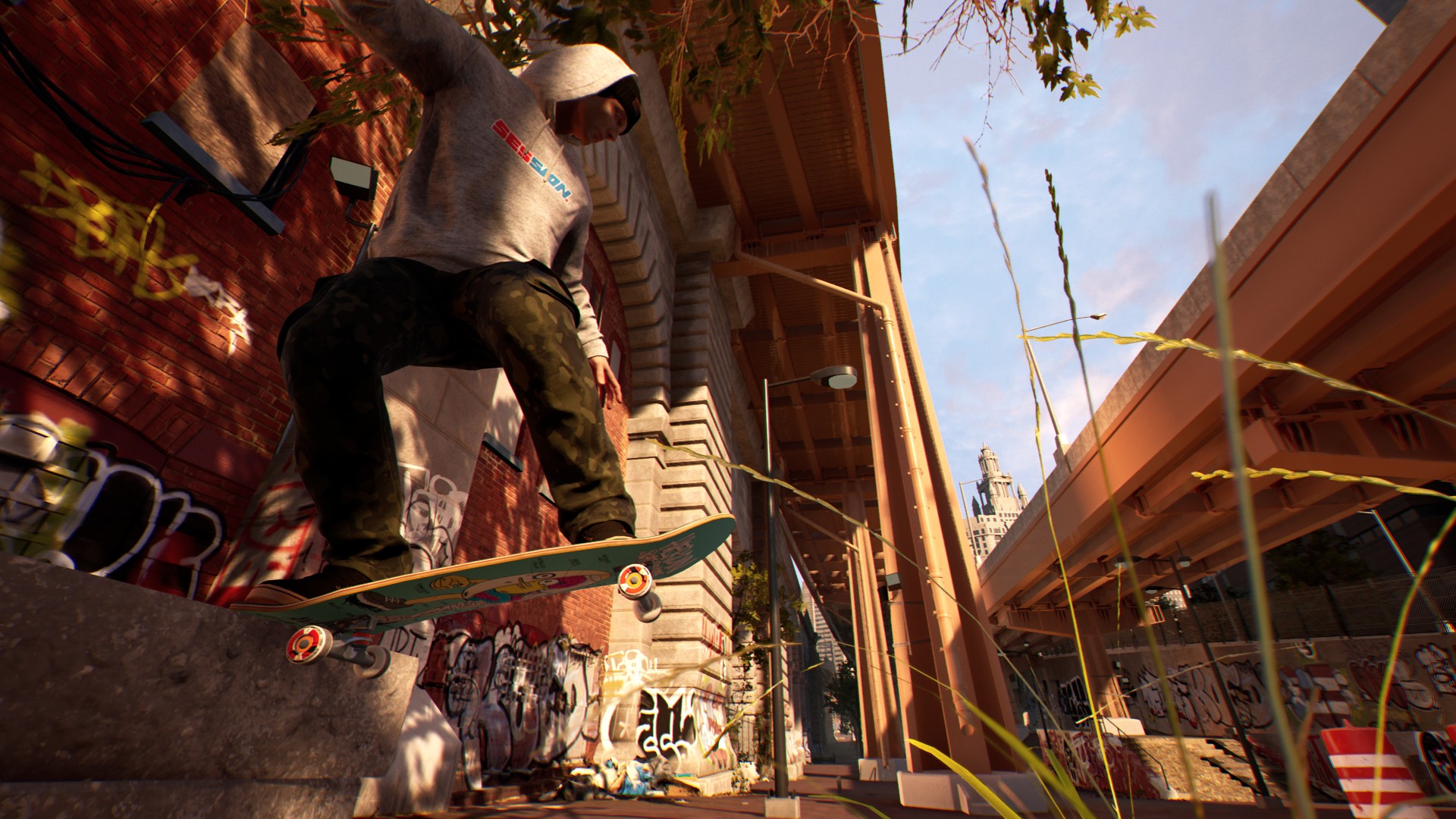
The biggest stand out (and barrier to accessibility) in Session are the controls, which require some serious cerebral function to get the hang of. "You need to rewire your brain into something completely new," Houde tells me. "It's basically Demon's Souls on a skateboard. You're going to eat shit a lot."
In Session, the analog sticks are the stand-ins for your character's feet – if your skater adopts a regular stance (left foot forward, right foot back), then pulling back on the right analog stick will crouch you down into your back foot, and pushing the left stick forward will pop you up into an ollie. The sticks can be flared out to execute kickflips and heelflips, or to slide to a stop when you're fast approaching a wall.
Using the sticks for tricks makes the board feel more like an extension of yourself, which will give skate enthusiasts something to cheer about. But that choice means players will have to completely rethink how to move – in Session the controller's triggers execute turns. "It's freaky at first because you want to use the sticks," Houde admits, "But it's very precise and it gives you more control."
Houde isn't wrong. When my brain settled into the controller layout I started executing tricks that surprised me – and boy, was it satisfying. I even managed, with his tutelage, to nosegrind on a ledge in One Police Plaza. Houde and Da Silva mentioned that they've seen a professional skateboarder pick up the controls quickly – "He destroyed the game," they say, almost in unison.
It's important to note that there are some adjustment options in the menu that can make the controls a bit easier, including an option to turn on and off Catch Mode, which requires you push on the joysticks to "catch" the board while executing a trick, and the chance to lock the analog sticks so that they're permanently mapped to your right and left food instead of swapping when you change stances.
Weekly digests, tales from the communities you love, and more
Skateboarding as a culture
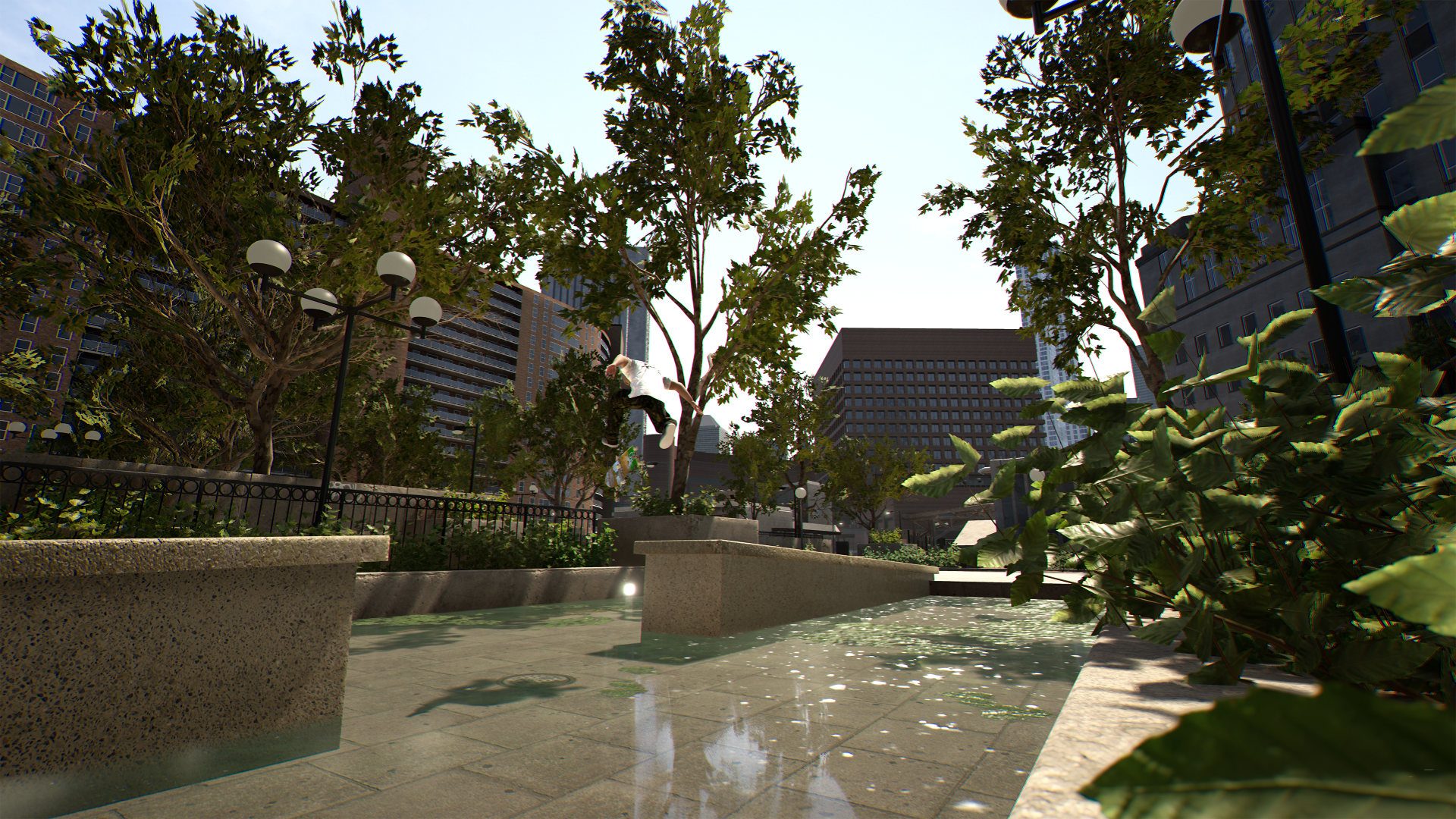
Ultimately, Session isn't so much a game as it is a detailed, laborious love letter to skateboarding culture. There is no scoring system in the game, for example, which Houde was adamant about. "This is skateboarding," he tells me, "It felt wrong to give more points to one thing than another."
In lieu of points, players can freely traverse a painstakingly accurate map of Lower Manhattan, scoping out ideal spots to try out a new trick. Houde and Da Silva even engaged in some light trespassing to get the accuracy down, as famed skate spot Brooklyn Banks has been closed for almost a decade. "We jumped the fence, I cut my pants, and started to walk like ninja stealth because the whole area is blocked," Houde tells me, noting that this is all a part of creating an authentic experience. "It fits so well with the concept of the game, the underground, what skateboarding really is. We need the Banks, we're gonna go get them. A skateboarder doesn't ask if he has the right to do it, he does it."
This is the ideology of the golden age era of skateboarding that Session is attempting to emulate – one where skaters took to the streets to obsessively attempt to grind a newly discovered rail in an off-limits area of NYC. And in Session, NYC looks pretty good. Granted it's still a month before Early Access (September 17 for Steam and sometime in October for Xbox) and there are some visuals that need work, but the attention to detail is pretty astounding, from the grates over the sidewalk tree planters to the extensive graffiti, which Crea-ture outsourced by posting in Discord for artwork.
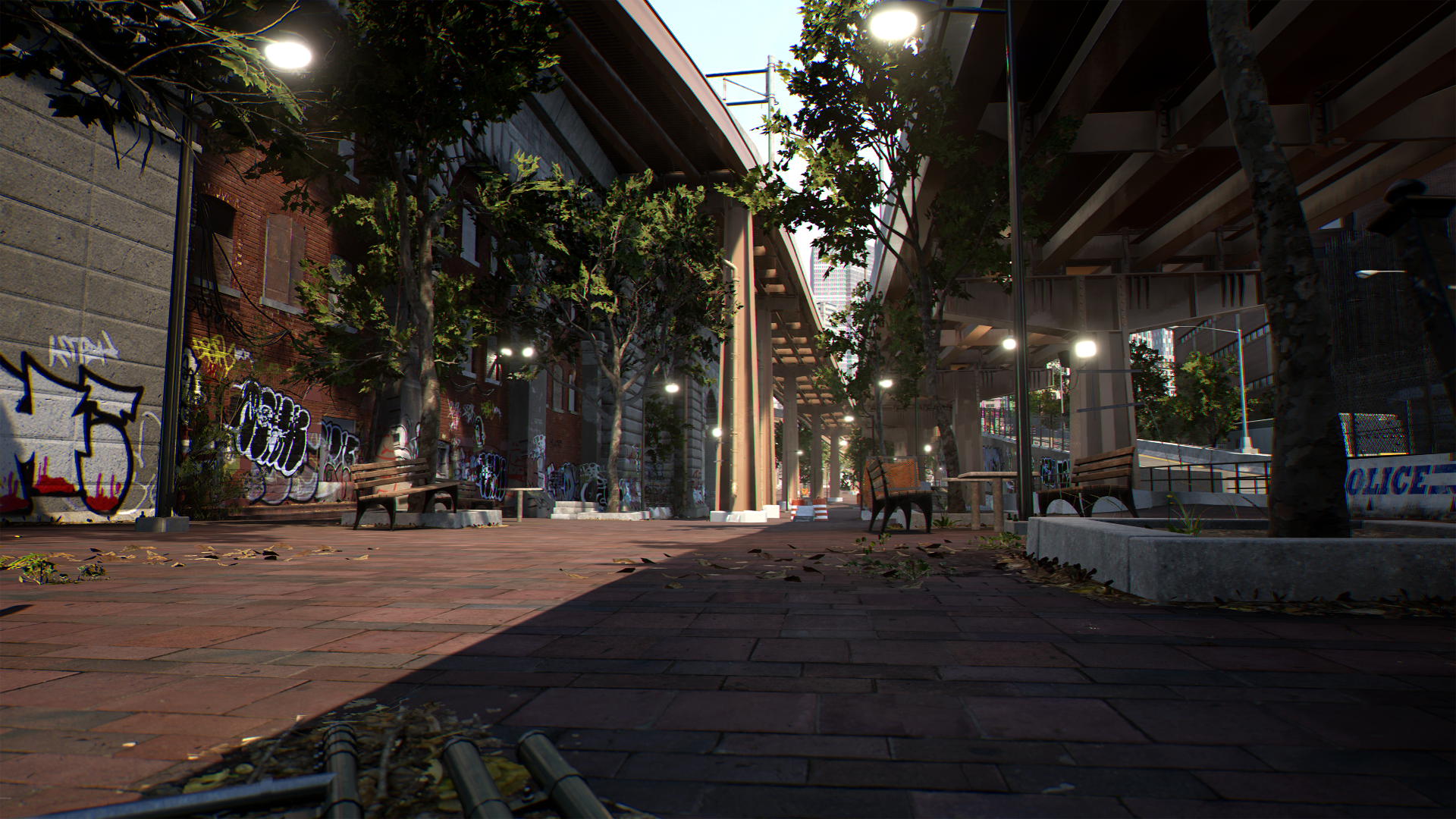
"Crea-ture is even working on adding a co-op option where a second player can act as the recorder, skating alongside you as you pop tricks"
The ability to change the time from day to night – and permanently place objects like metal dividers and floodlights – make for some beautiful shots, which you can record in Session's video tool and share with other players online. As I watch, Houde navigates to a square that he'd previously been messing around in the night before. "It's still there," Da Silva assures him as he changes the time in-game from 2pm to 2am. When he exits the menu, his skater is standing in the middle of the square, bathed in floodlights that Houde had dropped in so he could shoot footage at night – as it was set back far off the streets, it would have been too dark to see the fine details without the floodlights.
This is where Crea-ture hopes that Session players will really invest in the core ethos at the heart of the game - that the community of players will want to painstakingly create skate reels and share them socially to compare tricks, spots, and flares. The recording capabilities, with UI that mimics a VHS player, allow you to playback any moment and completely control and adjust the camera angle. Crea-ture is even working on adding a co-op option where a second player can act as the recorder, skating alongside you as you pop tricks.
It's truly a skate session
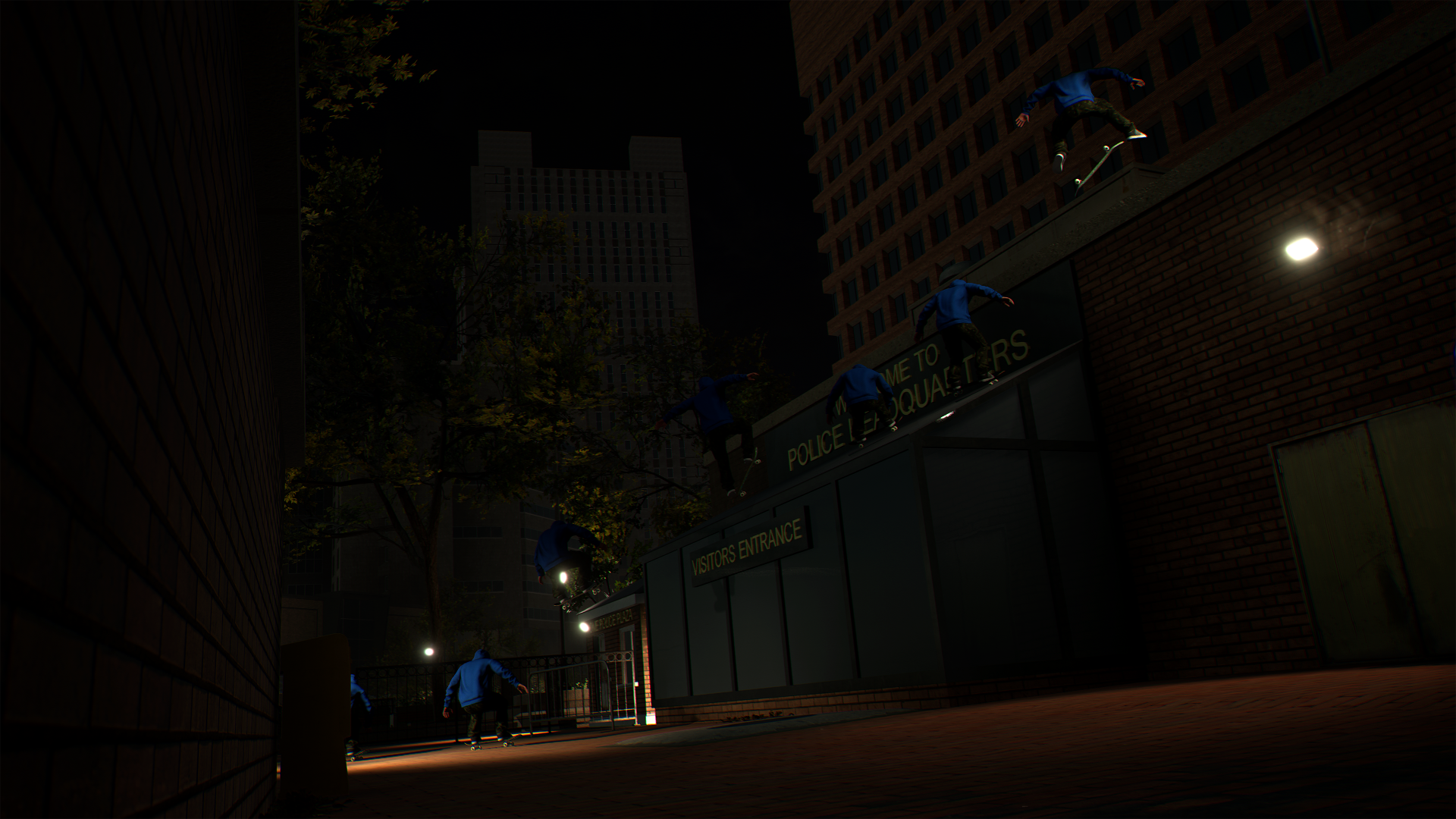
"We called it Session because skateboarding is not just skating around nonstop doing tons of tricks all the time. Most of the time it's skating the city, going to a spot, then skating that spot," Houde, insists, adding with a chuckle, "And eating sh*t. A lot."
And that, in essence, is what Session is truly about. The steep learning curve makes it frustrating as all hell, and the lack of scoring can make mastering the curve entirely unsatisfying... but Crea-ture doesn't really care about that, it just wants to make an authentic skate game. "We're attacking skateboarding as a cultural thing, more than a sport or an accomplishment thing," Houde, who's been skating for 30 years, remarks, "Be creative. Have fun."
Session is a beautiful homage to the true essence of skating. It's not about ridiculously big tricks that defy gravity and rack up points. It's about taking to the streets and obsessively attempting to land a pop shove-it to front noseslide on that ledge you spotted the other day. It's all about the session, dude.
Session will be available on Steam Early Access as of September 17 and will drop on Xbox Game Preview sometime in October. The full game is expected in early 2020.
Alyssa Mercante is an editor and features writer at GamesRadar based out of Brooklyn, NY. Prior to entering the industry, she got her Masters's degree in Modern and Contemporary Literature at Newcastle University with a dissertation focusing on contemporary indie games. She spends most of her time playing competitive shooters and in-depth RPGs and was recently on a PAX Panel about the best bars in video games. In her spare time Alyssa rescues cats, practices her Italian, and plays soccer.



